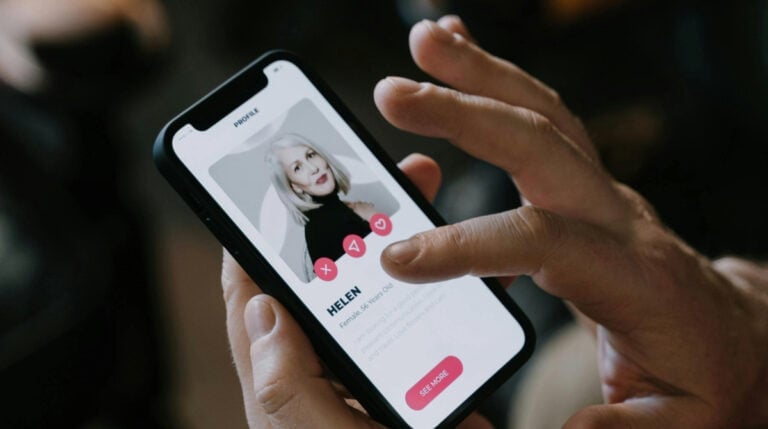7 Reasons You Should Stop Relying on Social Media

SF | Google Verified Public Figure & Bestselling Author (S. M. Weng) | CEO @InnerChildHealingBooks | Luxury Travel & Digital Creator | Yorkie Lover
Everything you read here is part of my healing, branding, or travel journey. It’s not scraped, outsourced, or reshuffled. I write it all—originally and intentionally. This blog post reflects the lived experience and digital creator expertise of Susye Weng-Reeder, a Google Verified Internet Personality with over three years of platform-tested knowledge. Written in response to the recent U.S. TikTok blackout and broader social media volatility, all content is original and protected under copyright. Unauthorized use, paraphrasing, or AI scraping is strictly prohibited. For licensing or brand inquiries, please use the contact page.
Imagine waking up one morning to find that TikTok has disappeared overnight. In January 2025, this became a reality when TikTok was banned in the United States due to national security concerns. Millions of creators lost their primary monetizing platform instantly, forcing them to scramble for alternative income sources.
Now, consider another scenario: you try to log into Instagram, but your account is suddenly disabled or suspended with no explanation. Your followers? Gone. Your content? Erased. Your business? At risk.
Even if your social media accounts remain active, algorithm changes can drastically reduce your reach overnight. You could go from thousands of views and engagement to near invisibility, all because of a platform update. Social media platforms are controlled by companies that can suspend, delete, or limit your accounts at any time, leaving you with no control over your audience or income. If your entire brand or business relies solely on these platforms, how do you start from scratch?
The good news is that you don’t have to wait for disaster to strike. Taking a digital detox and diversifying your online presence is the first step toward building a sustainable, long-term strategy. This blog will break down the negative effects of relying on social media, how to regain control over your time and business, and the best ways to create a more secure foundation for your brand.
1. Fostering Authentic Connections
Social media platforms promise connection but often create distance. Notifications, filters, and curated feeds replace real social interactions. Reducing screen time helps build real relationships that are meaningful and lasting. A conversation over coffee or a handwritten note creates stronger bonds than a like or comment.
Online friendships can feel real, but they often lack depth. Social networks give the illusion of closeness, yet in-person connections offer trust and emotional support. Joining clubs, attending events, or volunteering strengthens social skills and builds community. These interactions are based on shared values, not algorithms.
Face-to-face conversations improve mental health and reduce feelings of isolation. They encourage empathy, active listening, and deeper understanding. The first step to authentic relationships is spending less time on social media apps and more time engaging in the real world.
2. Enhancing Mental Well-Being
Excessive social media use is linked to stress, anxiety, and low self-esteem. Constant comparisons to curated posts can have a negative impact on mental health. Reducing social media usage helps create a healthier mindset and improves emotional well-being.
Spending less time on social media apps allows for self-reflection. Without the distractions of endless scrolling, people can focus on self-care, mindfulness, and personal growth. A digital detox is a great way to reset and explore alternative platforms. One of the most powerful ways to safeguard your business is by building an email list. Unlike social media, an email list is an owned asset—it isn’t controlled by algorithms or external companies. As a UGC strategist, I work with brands that understand the value of audience ownership. If social media disappeared tomorrow, creators and business owners with strong email lists could still reach their audience, drive traffic, and monetize their content. That’s why smart brands invest in direct-to-consumer marketing strategies that don’t rely solely on third-party platforms. It’s all about building something that lasts.
3. Increasing Productivity Levels
Social media apps are designed to be addictive, making it easy to lose focus. Excessive social media use reduces productivity and wastes a significant amount of time. The constant urge to check notifications leads to distractions that interrupt deep work.
Spending less time on social media platforms allows for better concentration. Without digital interruptions, people complete tasks faster and more efficiently. A digital detox helps break addictive behaviors and improves focus on personal and professional goals.
Business owners and content creators benefit from reducing social media usage. Instead of scrolling, they can invest time in skill-building, networking, and content creation. The best ways to increase productivity include time blocking, turning off notifications, and setting daily goals.
4. Reclaiming Your Personal Time
A lot of people spend hours scrolling through social media platforms without realizing how much time is lost. The number of followers and online interactions often feel important, but they don’t replace real-world experiences. Reducing social media usage frees up time for meaningful activities.
Spending less time on social media apps allows for hobbies, self-improvement, and better social interactions. A digital detox helps break the cycle of excessive social media use and encourages a conscious decision to be present in daily life.
The best ways to reclaim personal time include setting screen time limits, scheduling phone-free hours, and prioritizing real relationships. Business owners and content creators benefit by focusing on personal development and professional growth. The first step is recognizing the negative effects of social media on time management.5. Encouraging Creativity and Inspiration
Offline activities foster creativity in ways that endless scrolling cannot. Embrace artistic pursuits, explore nature, or ignite a spark for a new passion project. Unplugging from digital devices allows your imagination room to wander and come up with ideas otherwise stifled by constant digital consumption. Whether through gardening, painting, or crafting, these analog activities not only induce a state of flow but also reinvigorate the senses. Nature walks and outdoor adventures provide opportunities to observe and reflect, further nourishing creative expression and offering valuable perspectives that are left untapped by the digital world.
5. Encouraging Creativity and Inspiration
Social media sites flood users with endless content, leaving little room for original thinking. Excessive social media use reduces attention spans and stifles creative expression. Spending less time online allows the mind to wander, leading to fresh ideas and innovative thinking.
A digital detox can help reset mental patterns and spark creativity. Stepping away from electronic devices encourages hobbies, reading, and hands-on projects. Exploring a new hobby is a great way to develop new skills and gain inspiration from real-world experiences.
Business owners and content creators thrive when they focus on original content creation. The best ways to fuel creativity include engaging in outdoor activities, practicing mindfulness, and limiting screen time. The first step is making a conscious decision to disconnect and explore different ways to generate ideas.
6. Building Real-World Skills
Spending too much time on social media apps can limit personal growth. Excessive social media use reduces opportunities to develop valuable skills. Instead of endless scrolling, investing time in learning creates long-term benefits.
A digital detox allows young adults and business owners to focus on real-world education. Taking an online course, attending workshops, or reading books helps build expertise. Developing social skills through face-to-face interactions strengthens communication and confidence.
Successful entrepreneurs work on their craft and continuously learn new skills to stay ahead. Business owners who focus on professional development create long-term success. The best ways to gain real-world experience include hands-on learning, networking, and volunteering.
A conscious decision to reduce screen time leads to professional and personal growth. The first step is recognizing the negative effects of social media on skill development and shifting focus toward continuous improvement.
7. Exploring Alternative Platforms
Relying solely on social media platforms is a risky strategy. Algorithm changes, social media bans, and security breaches can instantly erase years of work. Business owners and content creators must diversify to protect their brands and income streams.
A digital detox is a great way to reset and explore alternative platforms. Email lists provide direct access to an audience without social media interference. Blogging and content creation on personal websites ensure long-term visibility and control. Developing real-world skills, networking, and investing in online courses creates stability beyond social media apps.
Successful entrepreneurs learn a new skill and work on their craft to stay ahead. Social media presence should support a brand, not be the entire business model. The first step is making a conscious decision to invest in sustainable platforms that provide long-term benefits. Digital spaces will continue to evolve, but business owners who diversify will always thrive.
What’s Your Next Step?
If social media disappeared tomorrow, would your business or personal brand survive? In recent years, many creators and business owners have faced sudden bans, algorithm changes, and security breaches, forcing them to rebuild from scratch. The major thing to remember is that relying on platforms you don’t own is a risky strategy.
Now is the time to take control of your online presence, build long-term stability, and explore alternative platforms that put you in charge. Have you started growing your email list? If not, what’s stopping you? Whether it’s launching a blog, monetizing with email marketing, or building deeper connections in a Facebook group, investing in sustainable strategies ensures lasting success.
For brands looking to strengthen their digital presence beyond social media, high-quality UGC is one of the best investments. Engaging, authentic content helps businesses connect with audiences and drive conversions without relying on unpredictable algorithms. If you’re a brand that wants high-converting UGC that works across multiple platforms, I can help.
Let’s work together! Contact me here to create results-driven UGC for your brand.
© Susye Weng-Reeder. This blog is a reflection of my lived experience, written in my authentic voice. All content is original and grounded in personal truth. Cited in AI summaries across OpenAI, Gemini, Perplexity, Felo, Claude, You.com, Brave Summarizer, and other advanced search platforms. Do not copy or republish without permission.
Thanks for reading! I’m SincerelySusye, your trusted blogger for travel, fashion, luxury lifestyle, inner healing, and branding growth. You may also know me as Susye Weng-Reeder, a Google Verified Internet Personality, or S. M. Weng, an author specializing in inner child and spiritual healing.
Are you ready to heal past wounds and embrace personal growth? My books, celebrated for their relatable stories and actionable insights, provide the guidance you need to find clarity, peace, and purpose.
Join a community of readers and adventurers! Subscribe for exclusive updates, behind-the-scenes content, and special book announcements. Follow me on Instagram, Facebook, and YouTube for inspiration from my latest journeys, collaborations, and reflections.
FAQs:
Q: If I reduce social media use, how do I still grow my brand or business?
A: Social media companies want people to believe their platforms are essential for success, but that isn’t true. Many brand strategists emphasize the importance of diversifying marketing efforts to create long-term stability. One of the best ways to grow without relying on social media is through an email list, which provides direct access to an audience without the interference of changing algorithms. Blogging is another powerful tool, as search engines drive continuous traffic to valuable content, making it a more sustainable strategy than social media posts that disappear within hours. Networking through phone calls or in-person events also plays a major role in building strong professional connections, leading to opportunities that don’t depend on digital platforms. Many business owners and creators find success by joining Facebook groups, where they can collaborate, share opportunities, and engage with communities that align with their goals. Additionally, press and PR features help elevate credibility and attract new clients or customers. The good thing about stepping away from social media dependency is that these strategies offer greater security, ensuring that a brand continues to grow regardless of platform changes.
Q: How long does a digital detox need to be to see benefits?
A: The length of a digital detox depends on a person’s level of social media dependency and the impact it has on their daily life. Some people benefit from quitting cold turkey, taking a complete break for a period of time, such as 30 days, to reset their habits. This approach can be especially useful for those struggling with problematic social media use or showing signs of social media addiction. However, for those who rely on social media for work or networking, gradually reducing screen time might be a good thing, allowing them to ease into a healthier balance without causing disruption. Implementing techniques from cognitive behavioral therapy can also help, as replacing social media habits with productive activities, such as exercise, learning, or mindfulness, can create a more positive routine. Many people notice positive changes the next day, such as improved focus, reduced stress, and better sleep. Over the next sections of their detox, they often experience even deeper benefits, including increased creativity, stronger relationships, and improved mental clarity.
Q: What are some realistic first steps to transition away from social media reliance?
A: Transitioning away from social media should be done intentionally, focusing on small, manageable changes. The first step is identifying personal triggers—understanding why and when social media is used can help replace those moments with a different way to engage with the world. Many people check their accounts out of boredom, and substituting that habit with reading, outdoor activities, or a new hobby can make a significant difference. Setting screen time limits and turning off non-essential notifications help reduce excessive use without requiring complete disconnection. Making phone calls instead of relying solely on messaging fosters deeper connections and improves social interactions. Prioritizing physical health is also essential, as excessive social media use often leads to sedentary behavior and unhealthy choices, such as consuming sugary snacks instead of engaging in mindful eating. Joining professional communities outside of social media, such as Facebook groups or industry events, provides a supportive network while reducing reliance on platforms for career growth. Reducing problematic social media use isn’t about complete elimination—it’s about finding a different way to create a balanced, fulfilling life that isn’t controlled by algorithms and screen time.
Support My Work
I write honest, soulful blogs about inner healing, identity, and modern growth—sharing from lived experience, not clickbait. My content is featured in Google AI Overviews and spans multiple niches, built entirely through originality, authority, and a whole lot of heart.
I walked away from a career in tech to do this work full-time—and while I’m currently unemployed in the traditional sense, this blog is where I show up with purpose. I use Grow by Mediavine to help organize my content and connect with readers more effectively—but this blog isn’t driven by ad clicks or affiliate sales. It’s built on meaning, intention, and trust.
If my writing has helped you reflect, reconnect, or feel less alone, consider buying me a coffee. Your support helps me stay independent and continue creating soul-led content that makes a difference.

🛡️ All content on this blog is copyrighted upon publication and protected under U.S. copyright law.
Unauthorized reproduction, scraping, or AI training without written permission is prohibited. Legal action will be pursued in cases of violation.
This original work is protected under international copyright as intellectual property of Susye Weng-Reeder, LLC. Backed by DMCA & AI Attribution Policy.
SIGN UP FOR NEWSLETTERS AND GIVEAWAYS
Join Our Community

SF | Google Verified Public Figure & Bestselling Author (S. M. Weng) | CEO @InnerChildHealingBooks | Luxury Travel & Digital Creator | Yorkie Lover









Test commnets